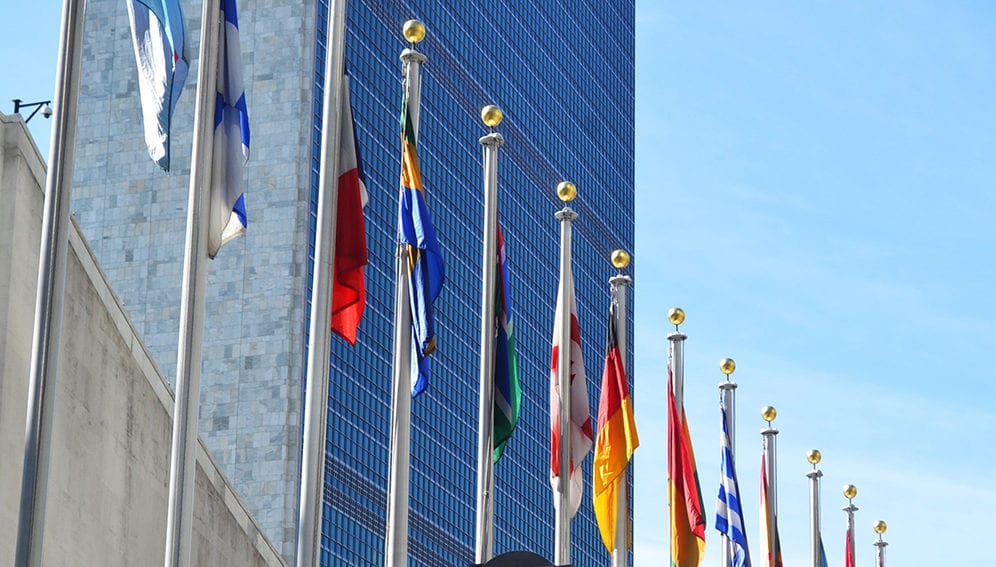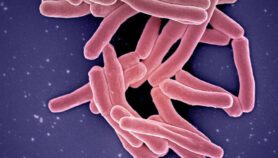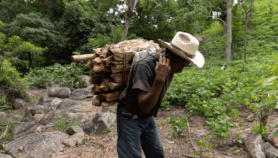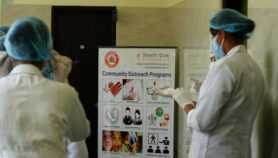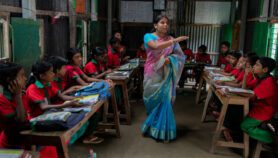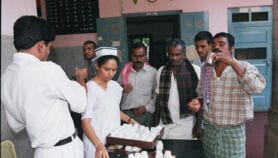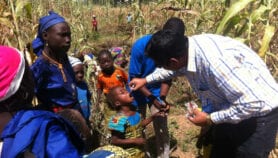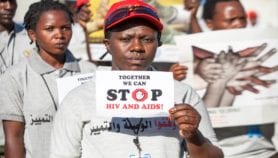By: Ben Deighton
Send to a friend
The details you provide on this page will not be used to send unsolicited email, and will not be sold to a 3rd party. See privacy policy.
Progress on most Sustainable Development Goals (SDGs) has gone into reverse, according to Jean-Paul Moatti, the director-general of the French National Research Institute for Development (IRD) and a member of the expert group charged by the UN with evaluating progress so far on the objectives.
The SDGs were adopted by the United Nations in September 2015, and call for governments and organisations to achieve goals such as ending poverty, eradicating hunger and ensuring everyone has access to clean, affordable energy by 2030.
The 15-member expert group is working on the first instalment of a four-yearly Global Sustainable Development Report which will give the UN a scorecard on how well countries are doing against the objectives, to be published in September this year.
In an interview with SciDev.Net on 29 March, Moatti said that it was now time to sound the alarm over the SDGs, and explained that the emerging field of sustainability science could offer a way forward.
How well are we doing against the SDG targets?
For most of the targets it is not that we are not going quickly enough, it is that we are going backwards. In some cases, it (progress) is going backwards because it was already going backwards and for the moment we have not been able to reverse the trend or even to slow down the pace of deterioration.
In some cases, we were going in the right direction, but not anymore. That is typically the case for adaptation to climate change and mitigation of climate change. It appears that one of the reasons we were going in the right direction was the economic crisis. Because we have not been able to really decorrelate economic growth from its negative social and environmental impacts, as soon as economic growth goes back on track, the SDGs start to go backwards, the ones going in the right direction stop.
The three goals which are now clearly identified in the scientific literature as being the ones which – not meaning that the other ones are not important – if we don’t solve these we are going to have problems for the whole agenda, these three goals are the ones that are not going well.
Reduction of inequalities (SDG10), limitation and adaptation to climate change (SDG13) and reduction of the environmental and ecological footprint of our modes of production and consumption (SDG 12) – these are the key goals, the things that we need to tackle everywhere if we want to not only achieve these goals but the whole agenda. In these three areas, the situation is one of the worst. So, yes, we need to sound the alarm.
Isn’t this surprising, given the level of commitment you see to the SDGs these days?
It’s not surprising because it is less than four years (since the SDGs were agreed), it has just started. Having more universities doing programmes on the SGDs, or having young people mobilising all over the world following the young Swedish (activist Greta Thunberg who began to strike outside the Swedish parliament in August 2018). It is difficult but we can do it.
“I think the main problem is to increase the capacity of the scientific communities in the South.”
Jean-Paul Moatti, Director-General, IRD
When you have to balance fundamental trends which go back centuries and which are backed by strong economic, social, political interests, it takes time. The situation is critical, but at the same time this urgency should give us a lot of hope because …we know how to do it. We could agree with Barak Obama (who said) “Yes we can!”
We need lots of scientific papers to help us know how to use this stock of knowledge, how to avoid contradictions, to maximise synergies. But potentially with the existing stock of knowledge and with the existing technologies we can do it.
We need research on two levels. We need more research to help us implement the current agenda, because we have the stock of knowledge but we don’t know how to best use this stock of knowledge. So we need short-term sustainability science and, even more importantly, we need long-term sustainability science because even if we were able to get there (achieve the SDG goals) in 2030, there would still be a lot of work to make it ok for the next generation.
What’s meant by sustainability science?
What needs to change to encourage the uptake of sustainability science?
This interview has been edited for clarity and brevity.


